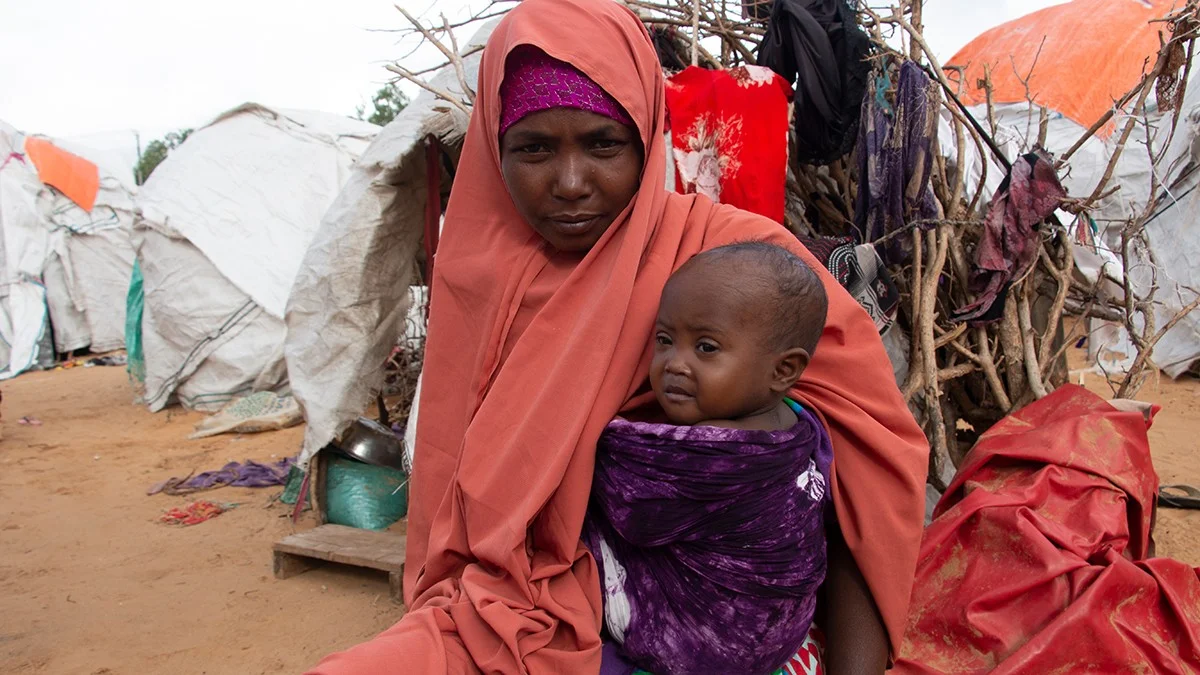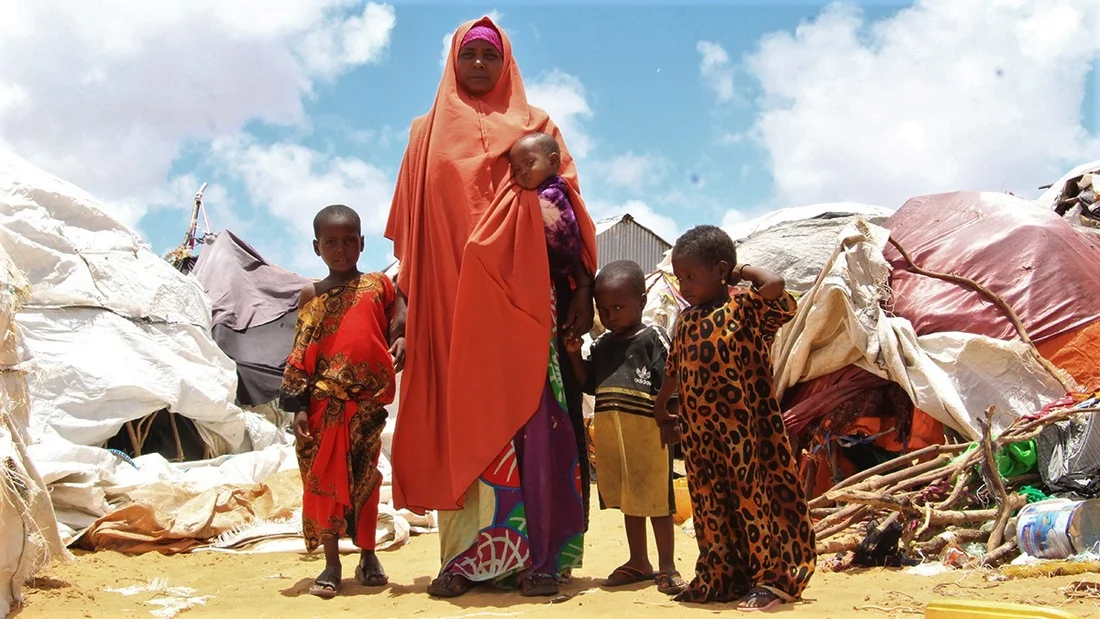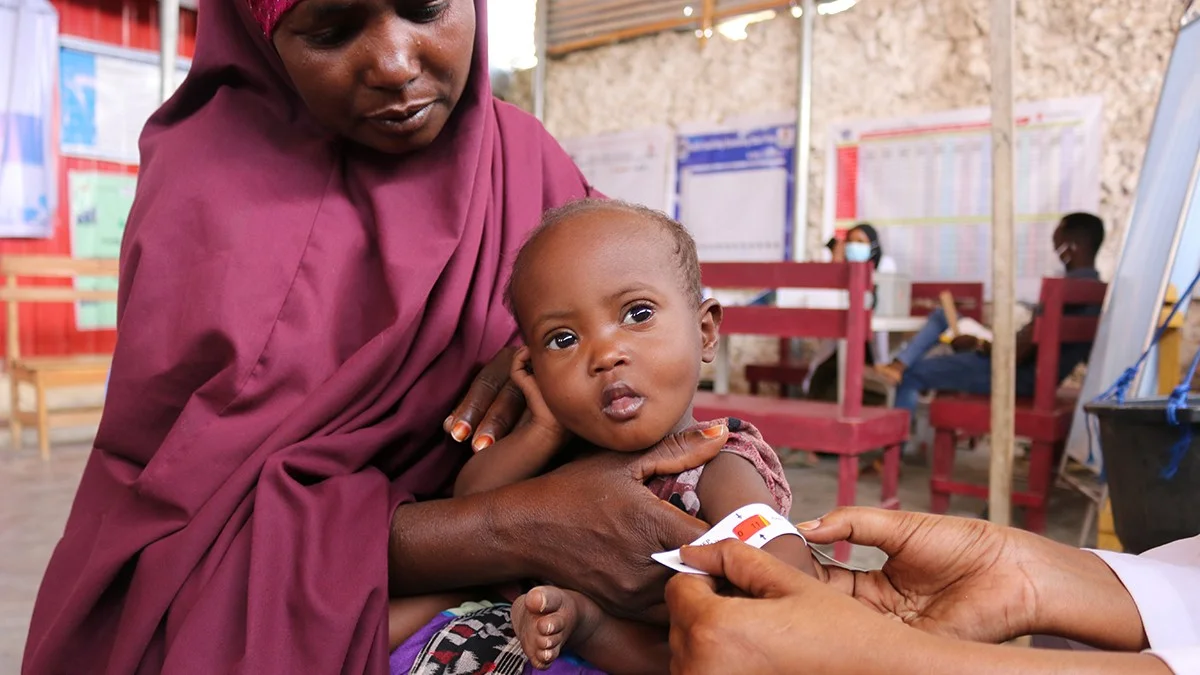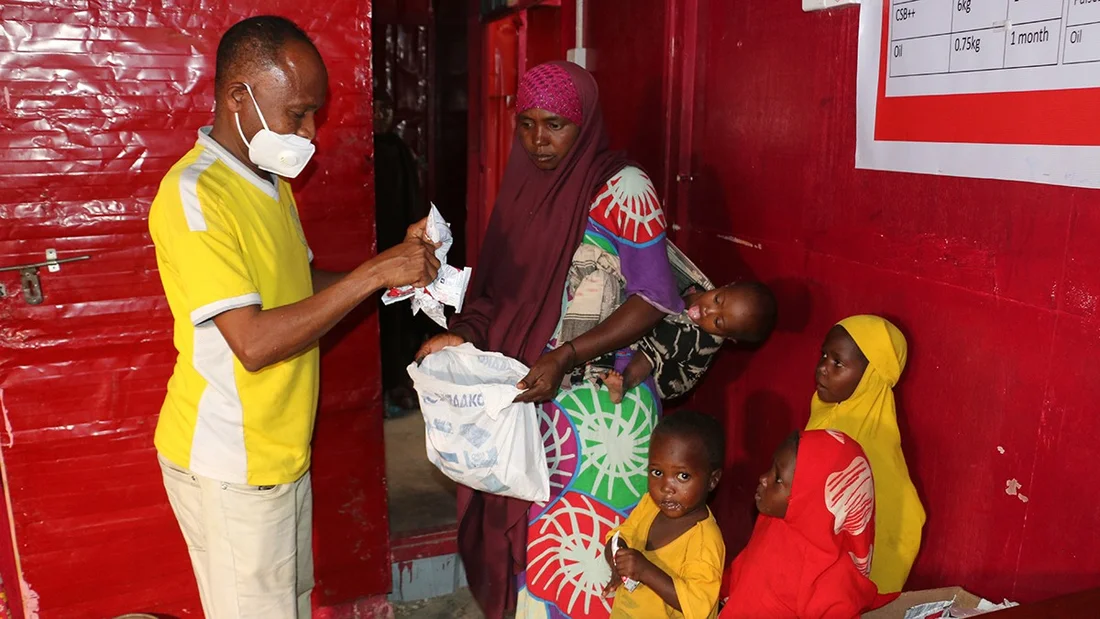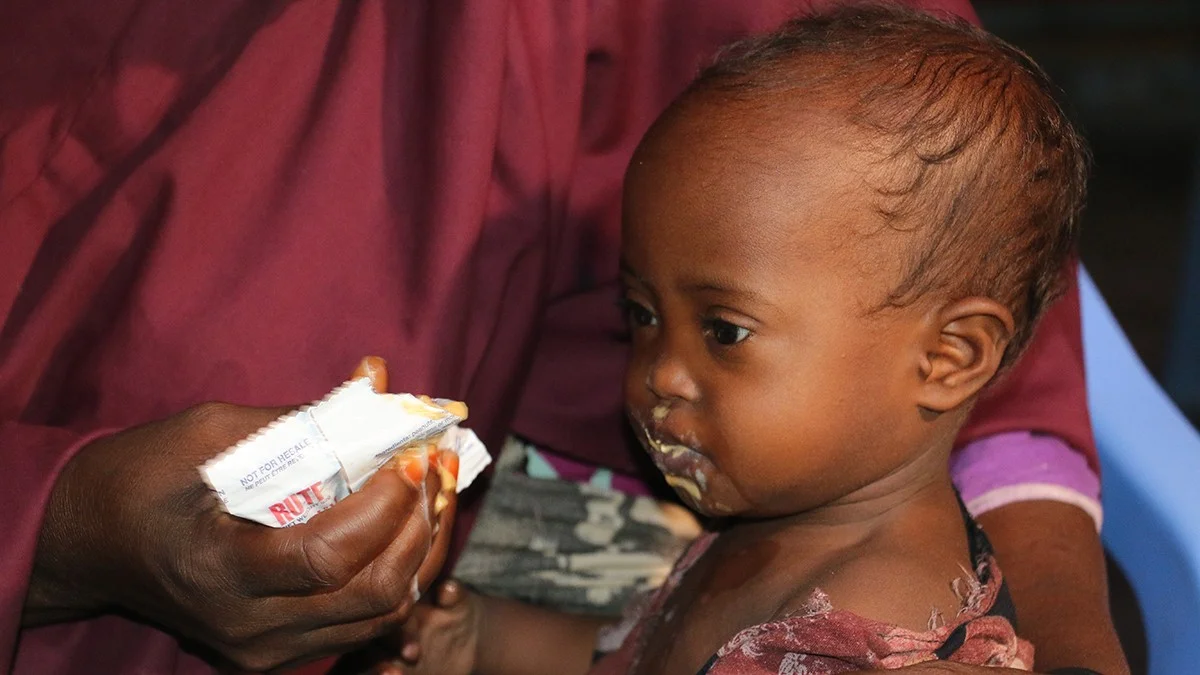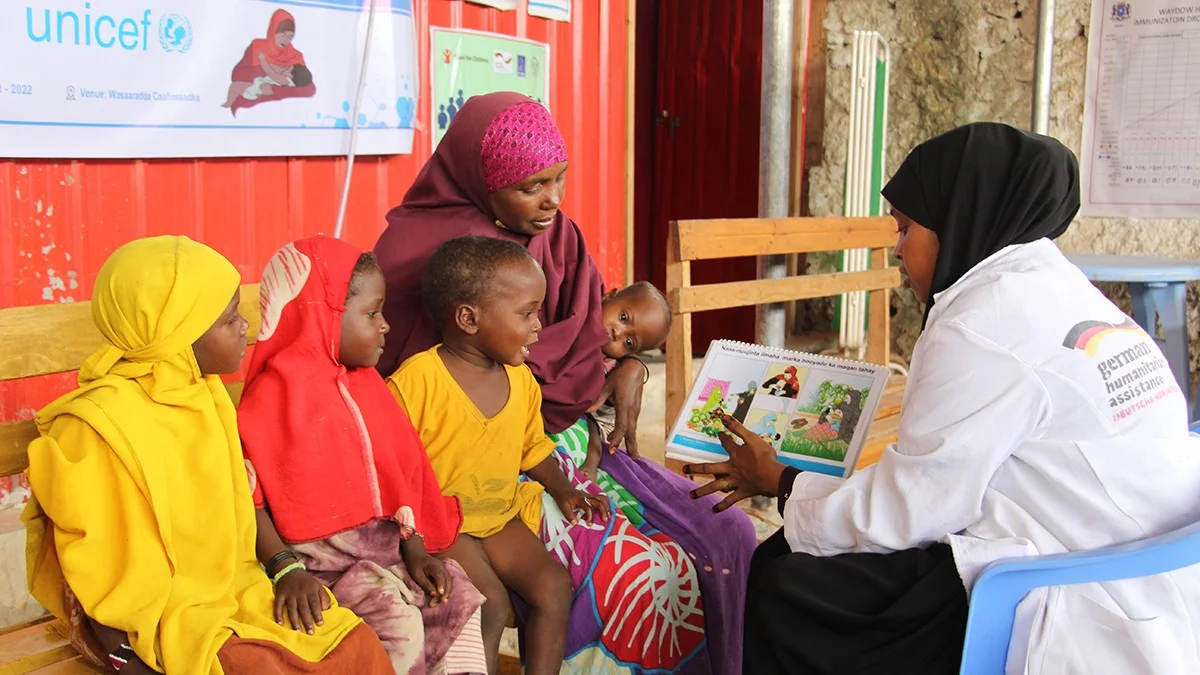Somalia is on the brink of famine. This is Khadijo’s story. She explains how she found a way to keep her children alive.
Khadijo Mohamed, 40 years old, is a mother and farmer from Dinsoor Town in the Bay region of Somalia. She sits in front of her makeshift tent on the outskirts of Mogadishu and recounts the journey she has had to take as her home region teeters on the brink of famine.
“We were farmers and used to live a comfortable life in our house. Before the drought hit, we planted maize, beans and other crops, and we used to have cows that we got milk from”, explains Khadijo. “Our lives depended on farming, as it provided our income and also guaranteed our survival. We sold some of the crops at the market, and either ate or stored the rest.”
Like thousands of other families across Somalia, Khadijo had to watch their crops fail, their livestock die, and their community’s water supplies evaporate. She fled to Mogadishu in search of food and water for her four youngest children.
“The family was fine and we had a peaceful life. Then drought hit”, she says. “We hoped for rain the next year, but it also became a drought. It became three consecutive droughts. After the third drought, we got into a car and left our home. We fled to the city.”
The journey to Mogadishu was brutal. They had no food for seven days and all her children fell ill. When they arrived at the outskirts of the city, her youngest child, two-year-old Sabirin, was severely malnourished.
“Sabirin got sick. I took her to the health center in Mogadishu, where she was weighed and was 4 kilograms. Before the start of our journey she weighed 5 kilograms. The health center staff referred us to Banadir Hospital, so I took Sabirin there. She was a thin, paralyzed child. When she was admitted to hospital, I felt she would die the following day.”
Khadijo watched over her tiny daughter in the hospital bed as she fought to survive. Her other children remained in their makeshift tent and were looked after by a neighbor. “I was in Banadir Hospital with her for nine days. They gave her nutritious food and she increased her weight from 4 kilograms to 5.7 kilograms. Now I feel my daughter is healthy.”
Although much improved, Sabirin is still malnourished and is being treated at a UNICEF-supported health center, where she continues to be given ready-to-use therapeutic food.
“When we were discharged from the hospital, they asked me to pay attention to hygiene”, says Khadijo. “They showed me how to give the baby the ready-to-use therapeutic food. They told me to give her a sachet in the morning, at noon and in the evening, and to wash my hands. They asked me to strictly follow this feeding pattern and contact the hospital if I didn’t know what to do.”
Sabirin survived. She is one of 44,000 Somali children admitted in August 2022 for treatment for severe acute malnutrition. The exploding number of malnutrition cases means that a child is admitted to a health facility for severe acute malnutrition every minute.
UNICEF is responding rapidly to this crisis in Somalia and across the entire drought-stricken Horn of Africa. UNICEF is deploying mobile “find and treat” teams to reach families in hard-to-reach areas. This year, UNICEF has treated more than 300,000 children for severe acute malnutrition and provided emergency water supplies through water trucking to 500,000 people in the past three months alone.
In addition to urgent health, nutrition and water supplies, UNICEF is aiming to provide 300,000 children with psychosocial support and access to formal or informal education. Amid drought, displacement and insecurity, these services help children to recover from their traumas.
Sabirin’s mother has high hopes for the family’s future now that they have made it safely to the city. “Because of the severe drought, animals and crops have perished; there is no place to go back to”, Khadijo reports. “I want to get used to urban life so that my children can go to school here and become engineers or masons. I want my children to get an education and study diligently so that they can have a better life. And I want Sabirin to excel in her studies and help poor people.”
